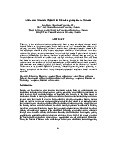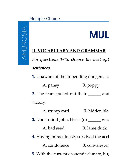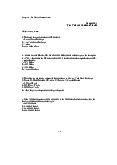



Preview text:
Service-learning Project Proposal
Community Partner: Food Grace Proposal title: Deliver Grace Student Name (Student ID)
Food Grace is a food recycling organization in Hong Kong. It transfers the excess food and
resources from the communities and donates those materials to families and community groups in need.
We visited one of their centers in Tai Po and participated in their service activities to know the
details of work. Their target group focuses on low-income families, comprehensive social
security assistance applicants, higher old age living allowance applicants and people referred by
social workers. After we followed their work and communicated to their staffs, we found that
Food Grace is facing difficulties in collecting food and resources and donating to people:
1. Lack communication to communities with collecting the food and resources
2. People with limited mobility or feel ashamed cannot take the food and resources
3. Lack manpower to deliver food and resources to all their members
Therefore, we design an activity to solve their problem. Content of the Project Surplus Food Donation Box
We are planning to set up a surplus food donation box in the market at Tai Po. By doing so we
can alleviate the above mentioned problems and increase the motivation of the owners to donate
their surplus food to the people in the society instead of wasting them to the land field.
The donation box will be an input only box. Wet market owners can donate their surplus
vegetables into the box every day. They do not have to worry about some people will steal the
vegetables from the box instead of buying from them as only volunteers from Food Grace can
open the box then take all the surplus food back to the centre at Tai Wo Estate.
Food Grace workers will collect the surplus food once a day to ensure the food is in good and
fresh condition. Otherwise, the vegetables will have the same outcome as they throw it away.
Workers will then help classify the vegetables in correct order. Packing them in a nice neat bag
prepares for the second stage which is the Deliver Grace. Deliver Grace
One problem that Food Grace is encountering that they do not have enough volunteers to deliver
the food to members individually. Some elderly with disabilities feels it is very difficult to grab
the food prepared by Food Grace every day. That is why we came up with a solution for them
and its name is Deliver Grace.
There are several secondary schools around Tai wo and Tai Po Market. Our plan is to ask those
students to serve the one in need in their building. Voluntary students will take a few packs of
vegetables in the Food Grace centre then deliver them to the flat. It helps the disability elderly
and develops students' empathy. Expected outcome
1. Assisting people with limited mobility (for Delivery Grace)
With the limitation of manpower, those Food Grace members with limited mobility
cannot access Food Grace's service nowadays. The new program will invite more
volunteers to deliver the materials to the apartments of all limited mobility members.
2. Helping people with the "real" need (for Delivery Grace)
Some elderly believe that Food Grace is only serving the elderly who are living below the
poverty line, they will blame other Food Grace members as they believe those members
occupied their resources. Actually, Food Grace has four types of target service groups
(People who are under Comprehensive Social Security Assistance (CSSA) Scheme,
Higher Old Age Living Allowance (Higher OALA), Disability Allowance, and social
worker referral). Some members are unwilling to apply for Food Grace materials since
they are afraid of gossip and embarrassment. The new program can avoid face-to-face
embarrassment and ensure the resource was used on the right people.
3. Improving food recovery process (for food recovery box)
The existing food recovery process is passive, vendors will donate their food when they
see the volunteers of Food Grace. Besides, Food Grace can only receive food from
several specific vendors. The relationships between Food Grace and the vendors will
affect the volume of food that could be received. Under the new program, a rise in the
volume of food recovery could be expected. With the rising volume of food recovery,
more members could be benefited and better solve the poverty issues in the community.
4. Educating the next-generation
Teenagers have opportunities to reach those people who are living below the poverty line
in our community under the new program. They can understand more about the poverty issues of Hong Kong. Potential challenges 1. Privacy issues
The volunteers may acquire Food Grace members' personal information (e.g., Full name,
address, and phone number) during the delivery process.
Solution: The least personal information is involved as possible. 2. Law requirement
Setting a food recovery box in the public area may violate the law (Cap. 132 Public
Health and Municipal Services Ordinance).
Solution: Food Grace may report the plan to the Food and Environmental Hygiene
Department and get permission first. 3. Hygiene issue
Recovered food will be spoiled easily in hot summer with high temperature. It may make
some smell and lead to hygiene issues.
Solution: Food Grace may increase the number of times to empty the recovery box to
avoid the recovered food being spoiled.




